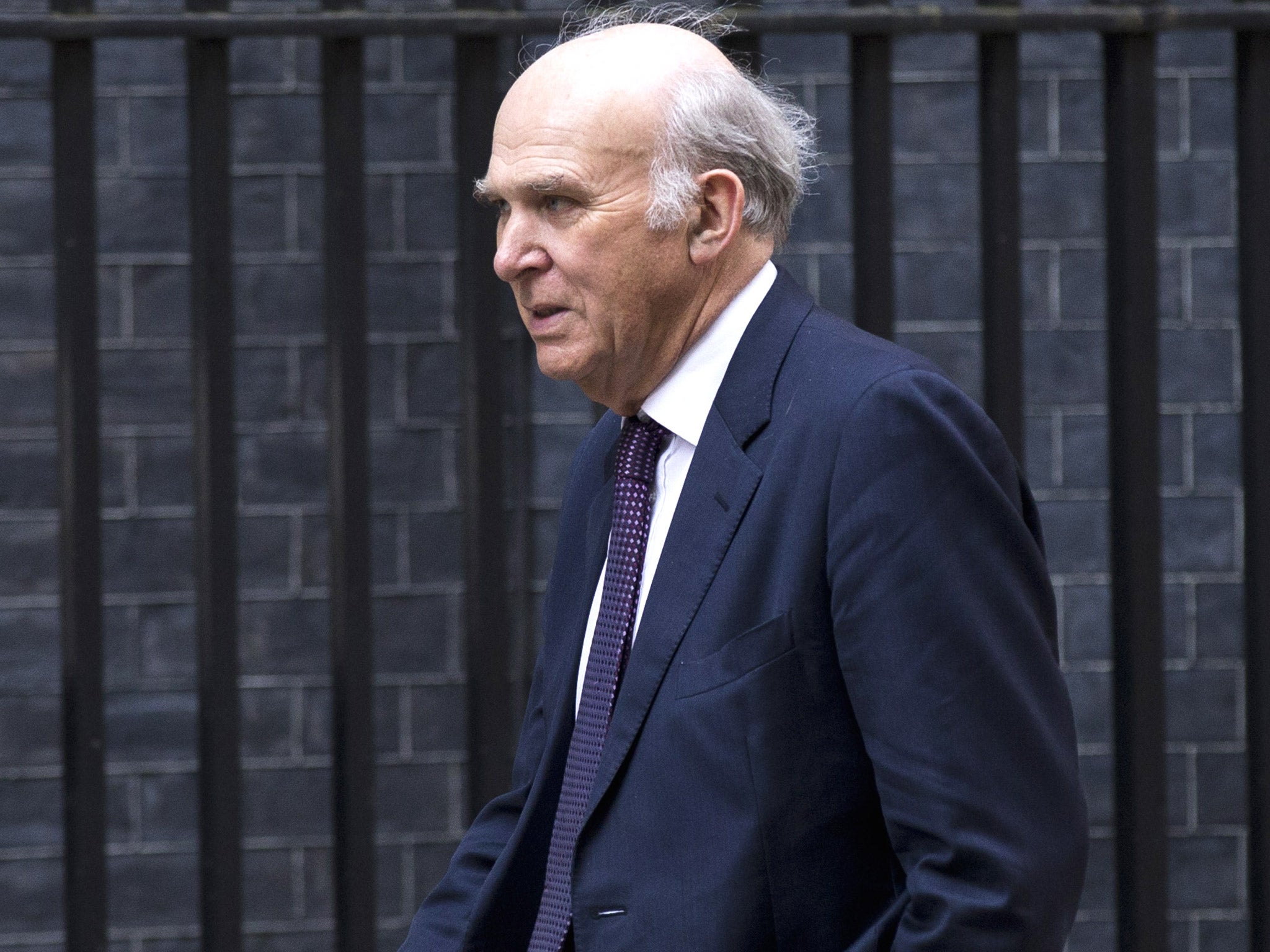Business Secretary Vince Cable refuses to quit over ‘successful Royal Mail sale’ as Labour attack ‘botched’ deal
Damning report suggests the Government could have cost the taxpayer as much as £1bn by undervaluing the business

Vince Cable shrugged off calls to resign over the controversial Royal Mail privatisation as he hit back at accusations that the business was sold on the cheap.
The Business Secretary was defiant following a damning report which suggested the Government could have cost the taxpayer as much as £1bn by undervaluing Royal Mail. Labour and trade unions have seized on the National Audit Office (NAO) report as evidence that the sale was seriously mishandled.
It also emerged that “priority investors” who were offered extra shares in return for staying in for the long term, sold them almost instantly at a large profit. Twelve investors sold all or some of their holdings within the first few weeks of trading.
The shadow Business Secretary, Chuka Umunna, attacked the privatisation as a “first class disaster” which had left taxpayers short-changed and City institutions “laughing all the way to the bank”. He called on Mr Cable to at least apologise for the “botched” sale.
Ben Bradshaw, a Labour MP, went further and challenged Mr Cable to consider his position as he was “responsible for such ruinous incompetence”.
Mr Cable dismissed the call and said the last thing he intended to do was apologise for the sale which he regarded as a success.
Claiming the NAO report vindicated his approach, he argued: “A more aggressive approach to pricing would have introduced significantly greater risk and the advice we received in this respect was unambiguous.”
The Liberal Democrat Cabinet minister received David Cameron’s full backing. The Prime Minister told a Downing Street press conference that the country had benefited from a windfall through the sale and was now receiving taxes from a successful business. He said: “A decade ago this company was losing money and people thought it was in an unrecoverable situation.”
The Unite union challenged ministers to name the 16 “priority investors” who were allocated shares during Royal Mail’s flotation.
Brian Scott, a national union official, said: “It is unbelievable that any government thought it could reach a gentleman’s agreement with rapacious investors who were out to make a fast buck.”
The NAO said Mr Cable’s department took a “cautious” approach to the sale, resulting in shares being priced at a level substantially below the initial trading price.
On the first day of trading last year, Royal Mail’s shares closed at 455p, 38 per cent higher than their price sale.
Subscribe to Independent Premium to bookmark this article
Want to bookmark your favourite articles and stories to read or reference later? Start your Independent Premium subscription today.

Join our commenting forum
Join thought-provoking conversations, follow other Independent readers and see their replies